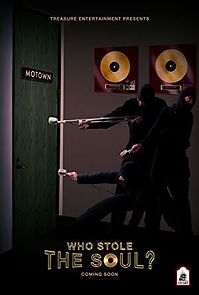|
The authenticity of soul music, more specifically Rhythm and Blues (R&B), mastered by pioneers such as Sam Cooke, Ray Charles and Quincy Jones, has been forced into obscurity due to the popularity of digitally mass produced tracks and lyrics recorded by current artists. In order to raise awareness and preserve the history of R&B music and its artists, we intend to create a documentary entitled Who Stole the Soul?, which poses the question, “What happened to R&B?” We will show that while many artists such as Puff Daddy and Kanye West have gained worldwide recognition for producing and writing, their music is rooted and stolen from a culture of live bands, four piece harmony sets and string instruments used by the musical icons of the 1960s and 70s. Although the current trend in R&B is to create music that centers on sexuality, chauvinism and stolen beats, R&B has a rich history that spoke to th! e political and social change of its time. In addition, R&B has long been a source of inspiration to its listeners and its lyrics and musical arrangements have inspired many Americans to be hopeful about their futures and proud of themselves. R&B music, stemming from the 1960s and 70s, became a springboard for the next generation of musicians and producers, such as Guy, New Edition, Baby Face, Jodeci, Jimmy Jam and Terry Lewis, and Janet Jackson. This generation of musicians continued to make music that was expressive and well crafted, thus sustaining longevity in the music industry. However, as gangsta rap started to take the music industry by storm, acts such as NWA, Too Short, Ice T, and the Ghetto Boys started to have an influence on the way R&B was produced and written. The lyrical foundation of gangsta rap was based on murder, degrading women, and the over-consumption of clothes, jewelry and cars. It was no longer important to talk about lovemaking and soc! ial change. Ironically, this trend became a cash cow for recor! d labels. The effect it had on R&B was ground breaking and as gangsta rap flourished, R&B sales diminished. As a result, the lyrical structure and musical arrangements of R&B were forced to change in order to compete with the popularity of gangsta rap music. Image became more and more important to the music industry and its listeners bought into it. Nowadays, an artist doesn’t even have to know how to sing to get a record deal. As long as they look beautiful and can dance, they can make a name for themselves as an entertainer in the R&B industry. Today, everything can be done in a studio. Technology is a scapegoat for the lack of talent that is prevalent in today’s crop of rap and R&B singers. The up and coming generation is disillusioned by the image R&B now perpetuates. It has become increasingly difficult for new musicians to learn how to read and write music, or learn how to manage a live band. It is more cost efficient to steal a beat fro! m original songs created by acts such as Parliament, The Temptations, Isaac Hayes or Al Green than it is to master an original track that uses live instruments. Likewise, it t is easier to find an attractive girl that has little singing ability, alter her voice digitally, dress her in a stripper outfit and have her sing a song about promiscuity. Throughout the film, we will explore these ideas, issues and themes in an effort to make sense of the destruction of one culture and the flourishing of another. And our goal is ultimately to discover and present Who Stole The Soul. |
||
| Ratings: | IMDB: 5.1/10 | |
| Released: | October 1, 2009 | |
| Genres: | Documentary | |
| Cast: | Bobby Brown George Clinton Berry Gordy K-Ci Hailey | |
| Crew: | Dwayne Johnson-Cochran Jesse Felsot | |



kerfy : had about enough of this show..